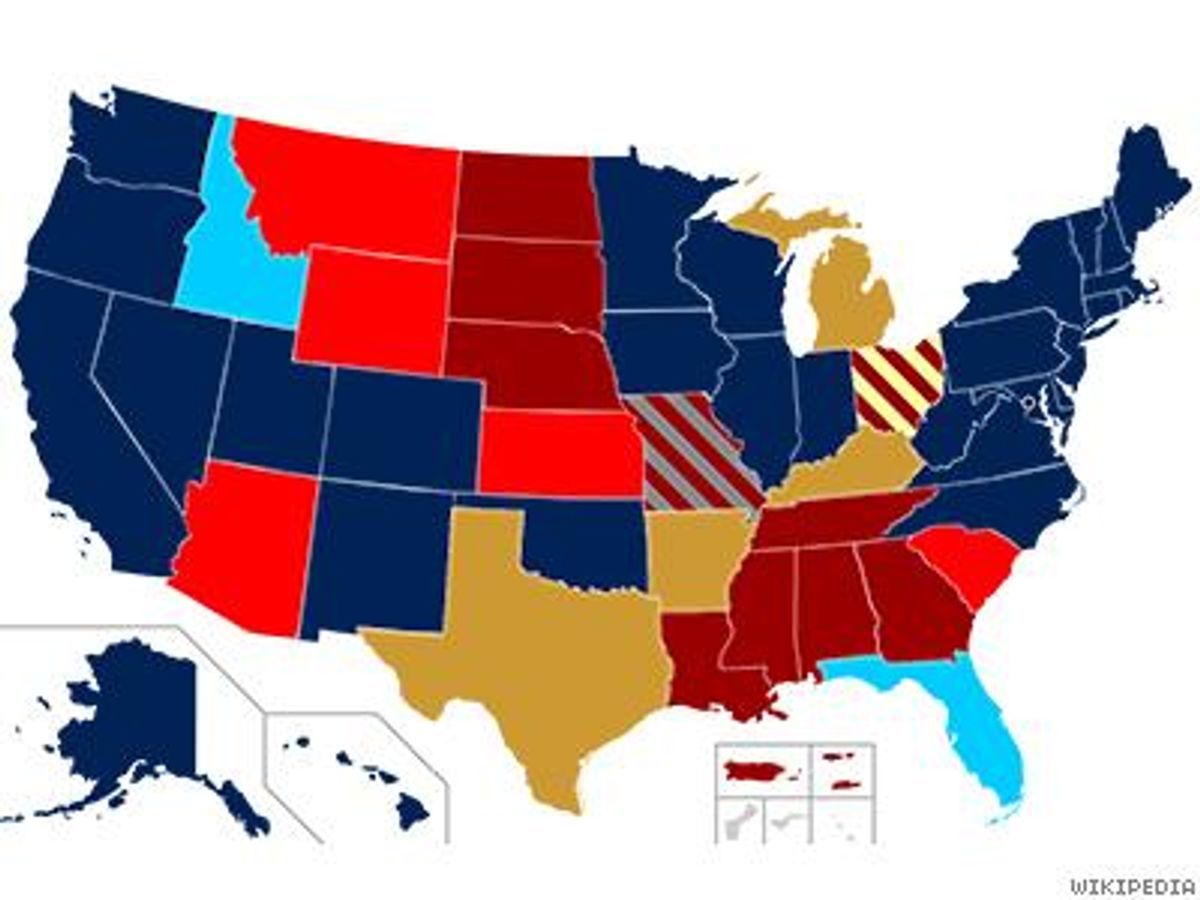The good news is that in the last week, marriage equality has come to so many states that it's hard to keep up. The bad news is the same: we're winning so quickly, it's hard to keep up.
But the rapid changes of the last few days seem to be slowing down, and although we still face some turmoil and uncertainty, laws are at least becoming clearer in a few states.
The most important thing to know is that marriage equality saw two major victories last week: first, the U.S. Supreme Court allowed marriage to start in five states; and second, the Ninth Circuit ruled against marriage bans in two more states. But both of those victories have broader implications, because Circuit Courts cover multiple states.
The Supreme Court victory applies most immediately to Oklahoma, Utah, Virginia, Wisconsin and Indiana. But in the days following that win, marriage also started in Colorado, North Carolina, and West Virginia. Wyoming, South Carolina and Kansas could see same-sex marriages begin soon as well.
The uncertanty about start dates depends largely on courts and state officials. Because there are pending cases in those states, officials will have to decide whether to abandon their defense of marriage bans, or drag out the litigation.
In the second victory, the Ninth Circuit ruled against bans in Nevada and Idaho. Nevada same-sex couples began marrying last week, and Idaho could follow suit soon depending on how courts handle a likely request for rehearing by state officials.
Other states encompassed in the Ninth Circuit states could see marriage equality arrive shortly, as well. That includes Montana and Arizona, as well as Alaska, where a judge ruled against that state's marriage ban late Sunday afternoon, allowing couples to begin marrying Monday, although the state announced its intention to appeal the decision.
At press time, same-sex couples in 29 states and the District of Columbia can marry, with the state of marriage equality in legal limbo in Idaho, Kansas, and Alaska.
Get up to speed in the video below:




















































































Fans thirsting over Chris Colfer's sexy new muscles for Coachella